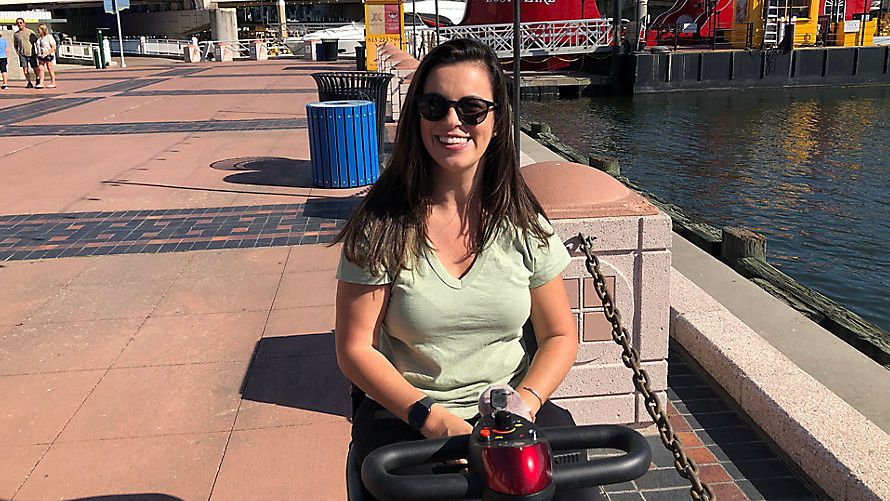TAMPA, Fla. — It was about three years ago that Chelsea Bear started her blog about living with cerebral palsy, but it was when the pandemic began in 2020 that she truly became a major presence on social media.
“The world of social media has really introduced me to so many people with cerebral palsy and other disabilities, and I’ve been able to relate in ways with people I never have throughout my life, so it’s been incredible and I’ve met so many amazing people that way,” Bear told Spectrum Bay News 9 last month.
What You Need To Know
- Cerebral palsy is the most common motor disability in childhood
- According to the CDC (in 2010), 59% of children with cerebral palsy could walk independently. Eight percent walked using a hand-held mobility device, and 33% had limited or no walking ability
- Chelsea Bear has grown a huge social media following after she began her blog
Bear was born with cerebral palsy, which in her case affects her ability to walk. Outside of her home, she gets around with a mobility scooter. She credits her parents with instilling in her that having a physicial disability doesn’t define who she is.
The 29-year-old has more than 289,000 followers on Instagram and more than 106,000 on TikTok. A communications major at Florida Gulf Coast University in Fort Myers, she’s worked in public relations since graduating. And now she's been able to leverage her social media following into becoming an influencer with different brand partnerships, as well as advocating for disability rights.
“I work with a bunch of really great brands that align with what I’m already talking about and just share if they have specific initiatives going on or products they want you know to highlight,” she said. “So it’s been fast and furious, but it’s been a lot of fun.”
When it comes to disability rights, Bear’s generation has been the recipient of the decades of advocacy work that was done that led to the ultimate passage of the Americans with Disabilities Act in 1990. The law prohibits discrimination against individuals with disabilities in all areas of public life, including jobs, schools, transportation and allpublic and private places that are open to the general public.
“There’s been a couple of restaurants or places I’ve been where the elevator hasn’t been working, so that’s made me feel like I don’t want to go back there, but beyond that, I’ve had pretty positive experiences everywhere,” Bear says about her experiences navigating in public places in the Bay area.
She says that while there’s been significant progress in disability rights, “there’s definitely a long way to go.”
“I think some buildings classify themselves as accessible because they have a ramp. But once you get inside, it’s hard to navigate still, you know, there still may just be one little step or the tables are close together where you can fit a mobility scooter, so just little things like that that you wouldn’t notice if you weren’t in a wheelchair,” Bear says.
You can learn more about Chelsea at her blog chelseabear.com and Instagram.com/realchelseabear/.



